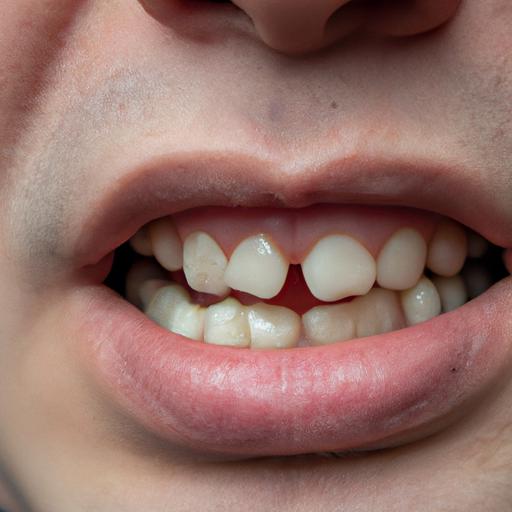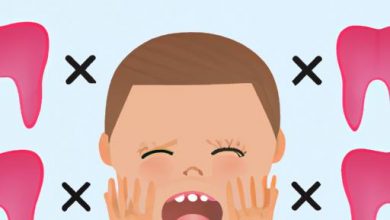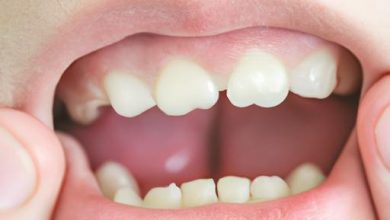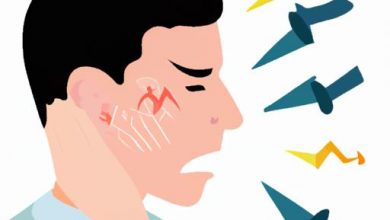Can Dental Problems Cause Digestive Problems?
Dental problems are more common than we realize, and they can have a significant impact on our overall health. One area that often gets overlooked is the link between dental problems and digestive problems. Poor oral health can lead to a range of digestive issues, from nausea and vomiting to abdominal pain and diarrhea. In this article, we’ll explore the link between dental problems and digestive problems and what you can do to prevent and treat these issues.
The Link Between Dental Problems and Digestive Problems

Many people don’t realize that oral health and digestion are closely linked. The digestive process begins in the mouth, where food is broken down by enzymes in saliva. If there are dental problems, such as tooth decay or gum disease, this can affect the production of saliva, leading to poor digestion. Additionally, if there are bacteria in the mouth from dental problems, they can be ingested along with food and cause digestive issues.
Good oral hygiene is essential for good digestion. Brushing and flossing regularly can help remove bacteria and food particles from the mouth, reducing the risk of digestive problems. It’s also important to visit your dentist regularly for check-ups and cleanings to ensure that any dental problems are caught and treated early. By taking care of your oral health, you can help prevent digestive problems and maintain overall good health.
Dental Problems That Can Cause Digestive Problems
There are several dental problems that can lead to digestive issues. Here are some of the most common:
Tooth Decay and Cavities
Tooth decay and cavities occur when bacteria in the mouth produce acid that eats away at the tooth’s enamel. If left untreated, this can lead to a hole in the tooth, causing pain and discomfort. Additionally, if the cavity is deep enough, it can reach the nerve of the tooth, causing an abscess. This can lead to pain, swelling, and infection, which can affect digestion.
Gum Disease
Gum disease is a bacterial infection that affects the gums and bone that support the teeth. It’s caused by a buildup of plaque on the teeth that can lead to inflammation and damage to the gums. If left untreated, gum disease can lead to tooth loss and can also affect digestion. The bacteria from the infection can travel through the bloodstream to other parts of the body, including the digestive system, causing inflammation and other issues.
Abscessed Tooth
An abscessed tooth is a painful infection at the root of a tooth or between the gum and the tooth. It’s caused by bacteria that enter the tooth through a cavity or crack. If left untreated, the infection can spread to other parts of the body, including the digestive system, causing pain and discomfort. Symptoms of an abscessed tooth include severe toothache, swelling, and fever.
Symptoms of Digestive Problems Caused by Dental Problems
Dental problems can cause a range of digestive issues, including nausea, vomiting, diarrhea, and abdominal pain. These symptoms can be caused by a variety of factors, including the presence of bacteria in the mouth, poor digestion due to a lack of saliva, and inflammation caused by gum disease.
Nausea and vomiting are common symptoms of digestive problems caused by dental issues. This can be caused by bacteria in the mouth that are ingested along with food, leading to an upset stomach. Additionally, poor digestion due to a lack of saliva can also lead to nausea and vomiting.
Diarrhea is another common symptom of digestive problems caused by dental issues. This can be caused by the presence of bacteria in the digestive system, which can lead to inflammation and irritation. In some cases, the diarrhea may be accompanied by abdominal cramping and pain.
Abdominal pain is a common symptom of digestive problems caused by dental issues. This can be caused by inflammation in the digestive system, which can be caused by the presence of bacteria from dental problems. Additionally, an abscessed tooth can cause pain and discomfort that can radiate to other parts of the body, including the digestive system.
If you are experiencing any of these symptoms, it’s important to seek medical attention. Your dentist or doctor can help determine the underlying cause of your symptoms and recommend appropriate treatment.
Prevention and Treatment of Dental Problems to Avoid Digestive Problems
The best way to prevent digestive problems caused by dental issues is to maintain good oral hygiene. This includes brushing and flossing regularly, as well as visiting your dentist for regular check-ups and cleanings. By taking care of your teeth and gums, you can help prevent tooth decay, gum disease, and other dental problems that can lead to digestive issues.
In addition to good oral hygiene, there are other steps you can take to prevent dental problems and avoid digestive issues. These include:
-
Eating a healthy diet: A healthy diet can help promote good oral health, as well as good digestive health. Avoid sugary and acidic foods that can damage your teeth and gums.
-
Drinking plenty of water: Drinking water can help keep your mouth hydrated, which is important for good oral health. It can also help promote good digestion.
-
Avoiding tobacco and alcohol: Tobacco and alcohol can damage your teeth and gums, as well as your digestive system. Avoiding these substances can help promote good oral and digestive health.
If you are experiencing dental problems that are causing digestive issues, it’s important to seek treatment. Your dentist or doctor can recommend appropriate treatment for your dental issues, as well as any digestive issues that may be caused by them. By taking care of your oral health, you can help maintain good digestive health and overall well-being.
Prevention and Treatment of Dental Problems to Avoid Digestive Problems
Preventing dental problems is the best way to avoid digestive problems. Here are some ways to keep your teeth and gums healthy:
Regular Dental Check-Ups and Cleanings
Regular dental check-ups and cleanings are essential for maintaining good oral health. Your dentist can detect any dental problems early on and treat them before they become more serious. Additionally, professional cleanings can help remove plaque and tartar buildup that can lead to gum disease and tooth decay.
Proper Dental Hygiene
Proper dental hygiene is crucial for preventing dental problems. Brush your teeth twice a day for two minutes each time, and floss at least once a day to remove food particles and bacteria from between your teeth. It’s also important to use mouthwash to kill bacteria and freshen your breath.
Treating Dental Problems Promptly
If you do have a dental problem, such as a cavity or gum disease, it’s important to get it treated promptly. Leaving a dental problem untreated can lead to more serious issues, such as tooth loss and digestive problems.
Conclusion
Maintaining good oral health is critical for overall health and well-being. Dental problems can lead to a range of digestive issues, from nausea and vomiting to abdominal pain and diarrhea. By practicing good dental hygiene and visiting your dentist regularly, you can prevent dental problems and avoid these digestive issues. Remember, prevention is key, so take care of your teeth and gums to maintain good oral and digestive health.
Zahnweiss Info is dedicated to helping you live your healthiest life by providing the latest updates on dental health news, treatments and therapies, inspiring patient stories, and expert advice. Visit our website today to learn more about how you can maintain good oral health and prevent digestive problems.




